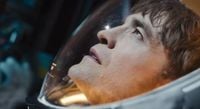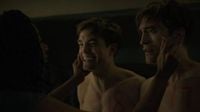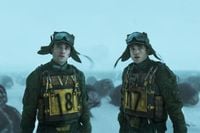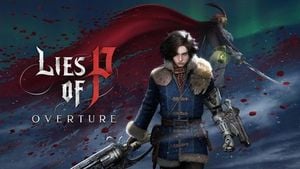In a daring exploration of identity and the ethics of cloning, the highly anticipated film Mickey 17, directed by Oscar-winner Bong Joon-ho, has made its digital debut on April 20, 2025, after grossing a remarkable $121 million globally. Starring Robert Pattinson in the titular role, the movie is based on Edward Ashton’s novel Mickey7 and delves into the dark realms of human obsolescence and the brutal realities of space colonization.
Set in a futuristic world where human cloning becomes commonplace for perilous space missions, Mickey 17 follows the journey of Mickey Barnes, a disposable astronaut sent to colonize the icy planet of Nifheim. His job is to undertake the most dangerous tasks, and whenever he dies, he is promptly cloned and replaced. However, a glitch in the cloning process leads to an unnecessary duplication, forcing Mickey to confront the unsettling implications of his existence.
The film's narrative is not just a thrilling adventure but a profound commentary on the nature of identity and the value of human life. As Mickey grapples with the reality of being replaceable, viewers are invited to ponder what it truly means to be unique in a world where life can be replicated at will.
Alongside Pattinson, the film boasts an impressive cast, including Mark Ruffalo, Naomie Ackie, Steven Yeun, and Toni Collette, each bringing depth to their roles and enriching the film's complex themes. Ruffalo portrays a vain and incoherent leader, while Collette embodies the stark contrast between high society and the cloned workforce, highlighting the disparities in privilege and exploitation.
As the film unfolds, the audience witnesses Mickey's internal struggle as he transitions from a resigned figure to one filled with defiance, showcasing Pattinson's remarkable ability to portray contrasting aspects of a single character. The performance oscillates between the tragic and the absurd, capturing the essence of a man caught in a relentless cycle of death and rebirth.
Visually, Bong Joon-ho constructs Nifheim as a sterile, bureaucratic nightmare, where the physical space mirrors the oppressive nature of the mission. The aesthetic choices—heavy costumes, labyrinthine corridors, and rationed food—serve as metaphors for the dehumanizing effects of cloning and the mechanization of existence. In contrast to other dystopian narratives that revel in destruction, Mickey 17 presents a methodical collapse, where the mundane becomes a ritual of despair.
The film's exploration of cloning raises critical ethical questions. What happens to individuality when every aspect of a person can be replicated? As Mickey's various incarnations confront their existence, the film challenges viewers to consider the implications of a society that commodifies life. The emotional anchor of the story is Nasha, played by Naomie Ackie, who defies the traditional role of a female supporting character. Her relationship with Mickey transcends romance, serving as a reminder of his humanity amidst the dehumanizing forces at play.
As the narrative progresses, Mickey's struggle for survival becomes a metaphor for the broader human experience in an increasingly mechanized world. The film's climax reveals a devastating paradox: the more copies of Mickey that are created, the less unique each one becomes, even as their experiences vary. This spiraling conflict invites audiences to reflect on their own identities in a society that often values productivity over individuality.
Bong Joon-ho's direction embraces chaos and complexity, refusing to confine Mickey 17 to a single genre. By intertwining elements of satire, thriller, existential drama, and political fable, the film presents a multifaceted exploration of the human condition. The absurdity of existence is highlighted through humor and horror, creating a narrative that is both unsettling and thought-provoking.
As viewers engage with the film, they are compelled to confront uncomfortable truths about their own lives and the systems that govern them. The film's refusal to provide easy answers or a linear storyline challenges audiences to grapple with the complexities of existence and the nature of being.
In addition to its philosophical inquiries, Mickey 17 also serves as a commentary on contemporary societal issues, particularly the exploitation of labor and the widening gap between the privileged and the dispossessed. Through its characters, the film critiques the technocratic elite who thrive on the backs of those deemed expendable.
As 2025 unfolds, film enthusiasts can look forward to a slate of upcoming releases, including Baby on January 9, Aqui on January 16, Anora on January 23, and Capitão América: Admirável Mundo Novo on February 13, among others. Yet, Mickey 17 stands out as a significant cinematic event, not merely for its thrilling premise but for its deep philosophical explorations.
In summary, Mickey 17 is more than just a science fiction film; it is a provocative inquiry into the essence of humanity in an age of cloning and commodification. With Bong Joon-ho at the helm, the film challenges viewers to reconsider their understanding of identity, existence, and the ethical implications of a world where life can be endlessly replicated.






